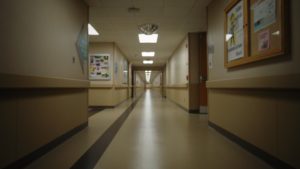 Hospital leaders across the US have been scrambling to have enough staff and ICU beds available to handle the influx of patients amid the Covid-19 pandemic, according to findings of Avant Healthcare Professionals’ 2021 Trends in Nurse Staffing Study.
Hospital leaders across the US have been scrambling to have enough staff and ICU beds available to handle the influx of patients amid the Covid-19 pandemic, according to findings of Avant Healthcare Professionals’ 2021 Trends in Nurse Staffing Study.
In addition to an overview of the current nursing shortage, the 2021 study examines how the pandemic has affected bill rates, clinical training of new nurses, and the overall well-being of RN staff.
With over 100,000 patients hospitalized until December 2020 alone due to Covid-19, demand has been high for travel RNs. The increase in demand for travel nurses has also led to an increase in their hourly rates. Travel RNs rates have fluctuated since Covid-19 — most have doubled. Some hospitals participating in the survey reported paying between $100 to $150 an hour for Covid-19 specific travel nurses.
As of today, there is no end in sight. More than half of the survey respondents expect to see heightened demand for nurses in medical-surgical and ER specialties. Operating room nurse demand has now decreased due to the delay of elective procedures caused by Covid-19, but as these elective procedures ramp back up, we can expect to see a tsunami effect in the latter half of 2021 and 2022.
PREMIUM CONTENT: US Healthcare Staffing Market Assessment: 2021 Update
As the nursing shortage increases in the years to come, hospital leaders will be expanding internal recruitment efforts — including relying more on recent graduates — adjusting current nurse pay and utilizing outside staffing agencies to fill these shortages.
Although hiring new graduates has been the common trend among hospital executives in the past, they still risk losing new RNs early in their careers, resulting in millions of dollars of loss for hospitals. Compared to the survey data in 2019, the number of RN openings has significantly increased over the last two years.
New hires have also felt the effects of Covid-19 as most nurses had their onboarding and clinical training affected due to the high volume of patients limiting their training capabilities. Respondents of the survey shared that nurses were coming in with less clinical experience. Orientation was online rather than in person and they had to rush the orientation process, and some even had to cancel their RN nurse residency program.
As the nursing shortage increases in the years to come, hospital leaders need to determine cost-effective solutions to address nurse staffing needs while operating with the uncertainty of the long-term effects of Covid-19 on their facilities and staff. Finding cost-effective solutions is necessary as a growing number of nurses plan to leave patient care, leaving new graduates unprepared for the realities of healthcare.
Over 100 hospital executives and senior leaders across the United States participated in this survey. These participants included CEOs, CNOs, and HR executives from various health systems, including critical access hospitals, state facilities, and more extensive health systems.
